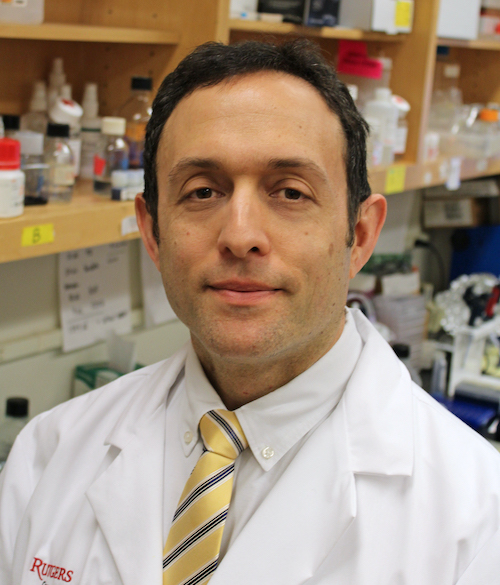New Brunswick, N.J., August 31, 2020 – September marks the time when students are gearing up for a new school year. As the coronavirus pandemic lingers in our region, state lawmakers recently cleared all public and nonpublic schools, colleges and universities for reopening with the option for districts to choose remote learning if unable to meet the required health standards for in-person learning. There is still much uncertainty as families prepare to navigate the upcoming months. Parents may have questions about how COVID-19 impacts children, especially if your child or a loved one in your home is immunosuppressed due to treatment for cancer or other health conditions. Peter Cole, MD, chief of Pediatric Hematology/Oncology at Rutgers Cancer Institute of New Jersey addresses some of these general concerns.
How might the coronavirus impact my immunocompromised child?
At the start of the pandemic, we were concerned that children who are undergoing cancer treatment or have a condition that impacts their immune system such as sickle cell anemia may be more susceptible to the coronavirus infection. However, evidence suggests that most immunosuppressed children are not at a higher risk of severe COVID-19 infection than their peers. Our experience in New Jersey mirrors what has been described at cancer centers around the world -- children with cancer and blood disorders who get infected with the virus that causes COVID-19 are often asymptomatic or have mild disease, similar to other children. From this experience, we conclude that a diagnosis of cancer or a blood disorder is NOT a factor that needs special consideration if a child is returning to school or participating in other activities like family gatherings or playdates. Parents should speak with their child’s doctor about their individual concerns.
Are pediatric cancer survivors at higher risk?
In many cases, childhood cancer survivors may experience late effects like susceptibility to other cancers, reproductive issues, or long-term emotional effects due to the cancer treatments they received during childhood or adolescence. This may cause worry if a childhood cancer survivor is returning to college or the workforce at this time. Despite these concerns, cancer survivors also do NOT appear to be at an increased risk of developing severe COVID-19 infections, compared to people who were never treated for cancer. It is important for everyone to take the same precautions like wearing a mask and practicing social distancing to avoid being exposed to the coronavirus. But we don’t recommend that cancer survivors isolate themselves or take any additional precautions beyond what is recommended for everyone else.
What if parents or loved ones are facing an elevated risk?
While it appears that incidence of severe COVID-19 infection in children is low compared to older adults, it is possible for children to transmit the virus from exposure in school or other social settings to the household. Those most at risk for major complications from coronavirus include elderly people and those with underlying health conditions such as chronic lung disease or cardiovascular disease. Families should take into consideration those at higher risk that may live in the household when deciding whether to send their children back to school.
How do I keep my child safe?
If your child is returning to the classroom, or even frequenting public places like shopping malls, grocery stores, or playgrounds, it is important to reinforce the everyday safety precautions put in place by the Centers for Disease Control and Prevention (CDC). These include covering your mouth and nose with a mask, frequent hand washing, avoiding close contact, and monitoring your health. Parents should also review their school’s plan for implementing precautionary measures for reducing the spread of COVID-19 if their district is planning to reopen schools for the academic year.
Dr. Cole is also the Embrace Kids Foundation Endowed Chair in Pediatric Hematology/Oncology at Rutgers Cancer Institute and professor of pediatrics at Rutgers Robert Wood Johnson Medical School. He conducts research in the Hugs for Brady Foundation Pediatric Cancer Research Lab.
For journalists – contact:
Krista Didzbalis
Media Relations Assistant
908-812-6114
krista.didzbalis@rutgers.edu
For patient appointments/inquiries – contact:
844-CANCERNJ (844-226-2376)


